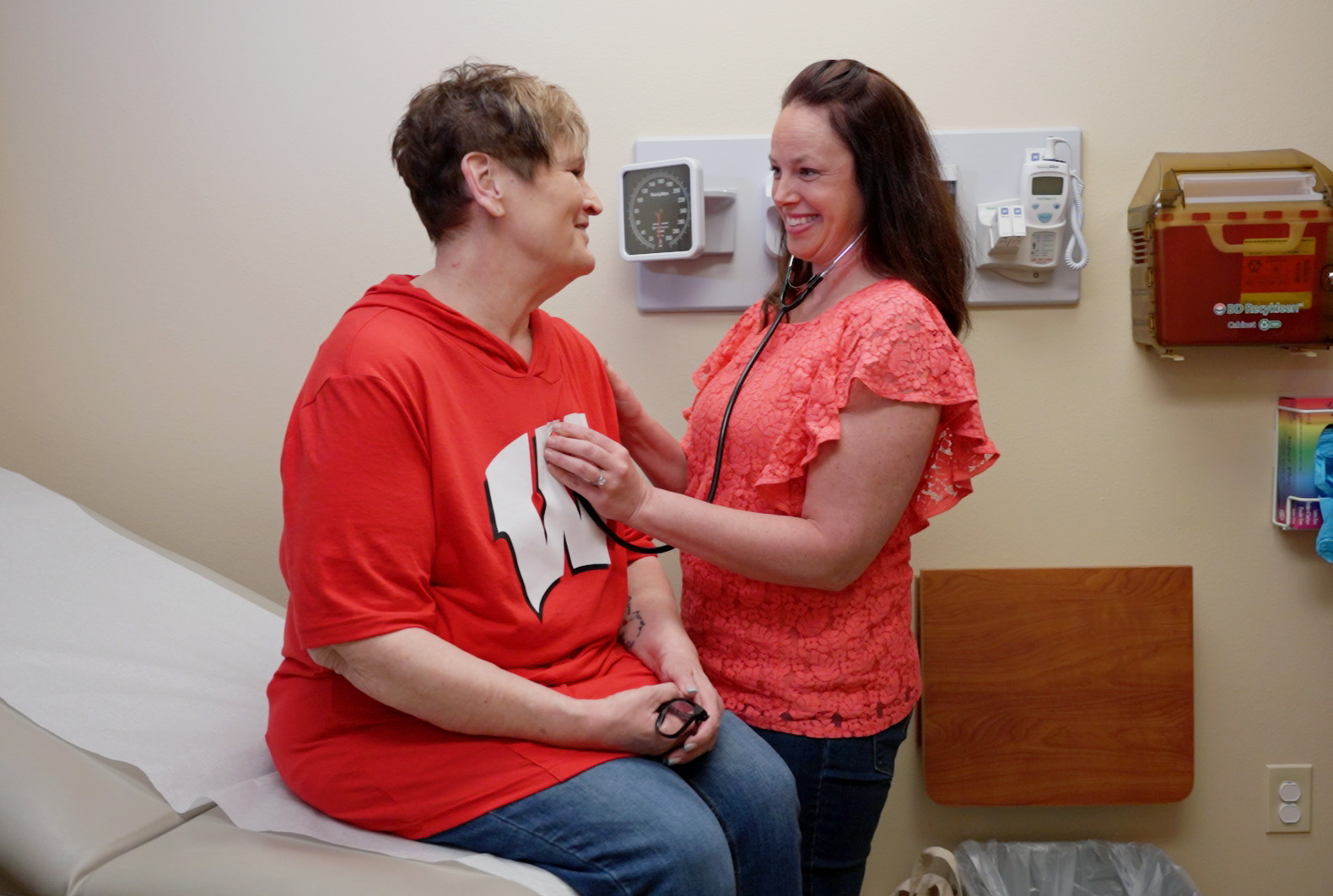Women nearing menopause can feel more comfortable with the right treatments and lifestyle changes
5/18/2023

Dr. Jenna Kolodziej, Board Certified OB/GYN
In honor of Women’s
Health Week (May 14 – 20), Aspirus Health recognizes the significance of
menopause in a woman’s life and aims to help women nearing menopause to
navigate this change more comfortably and confidently.
Menopause marks the
end of menstrual cycles, and is officially diagnosed after a woman has gone
twelve months without a menstrual period. This change is caused by a
significant decrease in the production of the hormones estrogen and
progesterone. As a result of the hormonal changes, women experience a variety
of physical and emotional symptoms that can vary widely in severity and
duration.
“Menopause is a
natural and inevitable stage of life, and it affects every woman differently,”
says Jenna
Kolodziej, MD, Board Certified OB/GYN with Aspirus Health. “With the right
treatment and lifestyle changes, women can navigate this transition with
confidence and grace, embracing the next stage of their lives.”
According to the
American College of Obstetrics and Gynecologists (ACOG), women may have
physical changes such as bone loss, vaginal dryness, hot flashes, changes in
sex drive and irregular menstrual cycles. They may also experience
psychological symptoms such as mood swings, memory problems and trouble
sleeping.
Fortunately, there are
many options available for women to manage their symptoms and improve their
quality of life. Hormone therapy is a common treatment option that involves
taking estrogen and progesterone to help relieve symptoms and prevent bone loss;
but Dr. Kolodziej suggests talking with your OB/GYN first, as it does have some
risks. Herbal remedies are available over the counter but are not regulated;
and some plants or herbs can be harmful when combined with certain medications,
so use with caution.
If you’re bothered by
the symptoms of menopause, the Office on Women’s Health (OWH) and the North
American Menopause Society (NAMS) offer some self-help strategies for some of
the most bothersome symptoms:
Night sweats:
- Keep a frozen cold
pack under your pillow and turn the pillow to the cool side as needed
- Wear lightweight
sleepwear and use layered bedding
- Use a fan
Irritability:
- Share concerns about
your mental health with your provider, just as you would share physical
symptoms
- Get your rest, make
healthy foods a priority, exercise, and stay mentally active
- Socialize. Research
shows that people with active social lives have the slowest rate of memory loss
- Don’t take on too much
and do at least one thing you enjoy every day
“Mood swings are
completely normal and are a result of changes in your hormones. It can feel
similar to when you’re a teenager going through puberty,” says Dr. Kolodziej.
“Emotions can be heightened and hard to deal with, but there are treatment
options such as medication and therapy.” She recommends talking with your
provider to determine the best way to manage any uncomfortable symptoms.
Don’t have an OB/GYN?
Find one at www.aspirus.org/find-a-provider.
Dr. Jenna Kolodziej sees patients at Aspirus Plover Clinic – Vern Holmes Drive
AND Aspirus Riverview Clinic – Wisconsin Rapids.
For more information
about women’s health services at Aspirus, visit www.aspirus.org/womens-health.

Back to all Posts